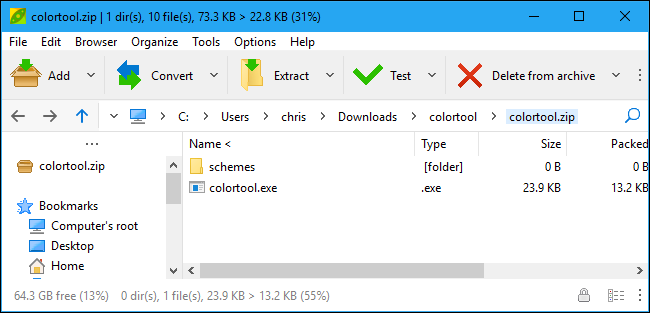
#Lzip vs 7zip code
Small code size for decompression: 2-8 KB (depending on speed optimizations) Small memory requirements for decompression: 8-32 KB + DictionarySize LZMA uses a dictionary compression algorithm (a variant of LZ77 with huge dictionary sizes and special support for repeatedly used match distances), whose output is then encoded with a range encoder, using a complex model to make a probability prediction of each bit.Ĭompression speed: 2 MB/s on 2 GHz dual-core CPU.Ģ0-30 MB/s on 2 GHz Intel Core2 or AMD Athlon 64.ġ-2 MB/s on 200 MHz ARM, MIPS, PowerPC or other simple RISC CPU. The SDK history file states that it was in development from 1996, and first used in 7-Zip. It has been under development since 1998. LZMAThe Lempel–Ziv–Markov chain algorithm ( LZMA) is an algorithm used to perform lossless data compression.
#Lzip vs 7zip how to
To use gzip, you know how to use bzip2More detail in Line flags are similar to those of GNU Gzip, so if you know how Within 10% to 15% of the best available techniques (the PPMįamily of statistical compressors), whilst being around twice asįast at compression and six times faster at decompression. High-quality data compressor, uses Burrows–Wheeler algorithm. GNU project and is now relatively popularīzip2 is a freely available, patent free, Its main advantages over compressĪre much better compression and freedom from patented algorithms. Replacement for compress, uses deflate compression algorithms.

Gzip gzip (GNU zip) is a compression utility designed to be a More detail about LZW, see the following links If no files are specified, the standard input will be uncompressed to the standard output. The uncompress utility will restore files to their original state after they have been compressed using the compress utility. In this article, I'll have a simple introduction about 4 tools and their libraries, followed by a test metric.Ĭompress is a Unix compression utility based on the LZC compression method, which is an LZW implementation using variable size pointers as in LZ78. Another word, most of them have same kernel. Rather, I'd like to only compare 4 of them.īecause behind these compression tools, there are actually several libraries. I'm not going to do the same thing again. There are numerous compression tools available on linux, more for other platforms, you can find lots of comprehesive compreson articles too.


 0 kommentar(er)
0 kommentar(er)
